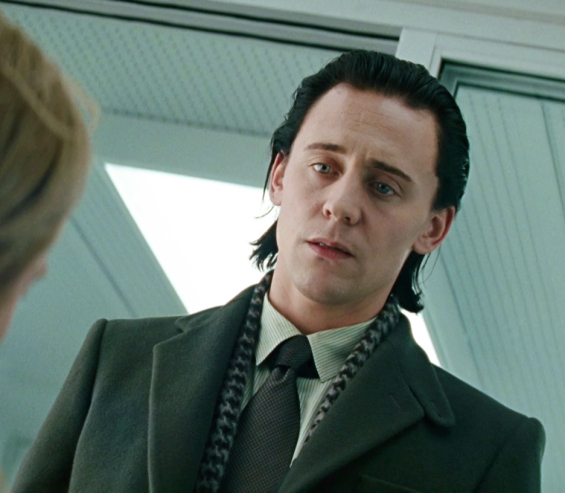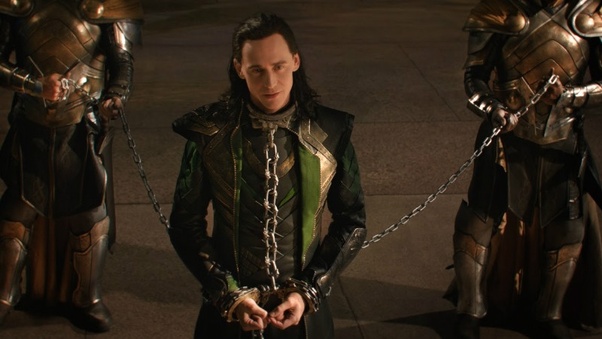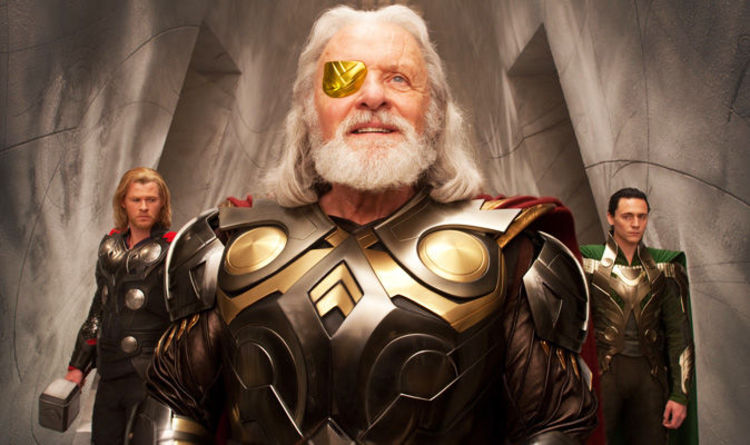Retconning, or rewriting the continuity of a franchise for convenience’s sake, is not exactly new to the Marvel Cinematic Universe. Though not nearly as problematic as the X-Men Universe (are we really to assume that Professor X looked like James Macavoy from 1962 to 1992, and then suddenly looked like Patrick Stewart in 2000?), it still has its share of continuity issues. With 20 movies now, the filmmakers likely hope that we have overlooked or forgotten them. After all, we’ve had two different actors play both the Incredible Hulk and War Machine. And why exactly did Tony Stark destroy all his suits at the end of Iron Man 3, only to resurface as the red and gold hero in Avengers: Age of Ultron with no explanation?
Still, many of these changes are forgivable. Everyone agrees that replacing Edward Norton with Mark Ruffalo was a brilliant move. And Earth’s mightiest heroes just wouldn’t be the same without Iron Man, so we can ignore what we’ve seen and assume that he just took a year or two off.
But I have a big problem with a more recent retcon that Marvel Studios has recently announced, and it involves one of their most popular characters: Loki.

When we first met Loki all the way back in 2011’s Thor, it didn’t take long for him (or the audience) to learn of his true origins: the son of frost giant King Laufey, that Odin found and raised as his own following a bitter war. Loki has long been established as the resentful offspring of Odin’s family for that very reason: immediately (and understandably) feeling like the outsider and never “Asgardian enough” for the throne. This leads to his taking over Asgard, and after he fails at that (and presumably dies for the first of three times), he seeks out the Other (who works for Thanos) and makes a deal to obtain the Tesseract in exchange for rulership of Earth. To aid him in this quest, he receives the Mind Stone in the form of a scepter.
However, according to some recently added text on Loki’s profile on the official Marvel website, the original Avengers movie didn’t quite happen the way we remember it. The Mind Stone (and ultimately Thanos) are responsible for Loki’s actions on Earth, not him.
According to the Marvel website, “Offering the God of Mischief dominion over his brother’s favorite realm Earth, Thanos requested the Tesseract in return. Gifted with a Scepter that acted as a mind control device, Loki would be able to influence others. Unbeknownst to him, the Scepter was also influencing him, fueling his hatred over his brother Thor and the inhabitants of Earth.”
Now this may seem relatively minor, but this completely changes several things about Loki that are essential to his character, as well as presents some major contradictions. Here’s why this retcon doesn’t make any sense:
1. Loki shows no remorse

The next time we see Loki is in 2013’s Thor: The Dark World, where he is initially brought before Odin by Thor following the ending of The Avengers. This dialogue is very telling:
Loki: I really don’t see what all the fuss is about.
Odin: Do you not truly feel the gravity of your crimes? Wherever you go there is war, ruin and death!
Loki: I went down to Midgard to rule the people of Earth as a benevolent God, just like you. (more on this in reason #2)
Odin: We are not gods! We’re born, we live, we die, just as humans do.
Loki doesn’t dispute Odin’s accusations, but rather tries to make excuses for it.
Later, while imprisoned, Loki’s mother Frigga visits him:
Frigga: You know full well it was your actions that brought you here.
Loki: My actions? I was merely giving truth to the lie that I had been fed my entire life…that I was born to be a king.
Frigga: A king? A true king admits his faults. What of the lives you took on Earth?
Loki: A mere handful compared to the number that Odin has taken himself.
Again, he doesn’t dispute what he did on Earth (or his intention), and attempts to justify it by claiming he is no different than Odin…which brings me to my next point:
2. Loki is basically Young Odin

Loki may have been born a frost giant, but there is a lot to be said about nature vs. nurture. Though he’s adopted, Loki is shown to have a lot in common with Odin. As Loki mentioned, his desire to rule Earth (or ‘midgard’) was partially inspired by Odin’s imperialism and genocide in the past.
Now, Loki’s track record doesn’t make him the most trustworthy individual. He could be exaggerating or misrepresenting the past. However, 2017‘s Thor: Ragnorok confirms Loki’s claims with the arrival of his and Thor’s sister, Hela. She scoffs at the palace ceiling paintings showing peace and frivolity on Asgard that covered up the bloodshed of the past, remarking:
“Look at these lies! Goblets and garden parties? Peace treaties? Odin. Proud to have it… shame of how he got it! Odin and I drowned entire civilizations in blood and tears. Where do you think all this gold came from? And then one day he decided to become a benevolent king. To foster peace, to protect life.”
She also claims that, “We were once the seat of absolute power in the cosmos. Our supremacy was unchallenged. Yet Odin stopped at nine realms. Our destiny is to rule over all others.”
While Hela is not exactly the most trustworthy character as well, she corroborates Loki’s story and the hidden paintings confirm it.
 All these memes that came out kind of had a point…Odin, Hela and Loki WERE pretty much the same character, at one point or another. Either Thor is adopted or he just takes after his mom.
All these memes that came out kind of had a point…Odin, Hela and Loki WERE pretty much the same character, at one point or another. Either Thor is adopted or he just takes after his mom.
The point is – the Mind Stone didn’t need to influence Loki’s actions; it was already in his upbringing.
3. It minimizes and devalues Loki’s sacrifice and redemption

Loki, obviously, is a complicated character, and that’s what makes him so compelling and popular. It’s not past him to betray those closest to him – aside from his role as the primary antagonist of both Thor and The Avengers, he dumps Odin in a nursing home and impersonated him four years on Asgard between Dark World and Ragnorok. He’s betrayed Thor more times than we can count, and even Thor acknowledges that their paths “diverged a long time ago” and it’s best if they never see each other again. But Loki can show up and save the day as well, like when he returns to Asgard to help Thor, Valkyrie, and Hulk defeat Hela and save the Asgardian refugees, his people by adoption but not blood.
That’s what makes his sacrificial death and redemption at the beginning of Avengers: Infinity War so meaningful. At the end of the day, facing the most powerful villain in the universe reminded him how much he loved and appreciated those he once resented and despised, namely Thor and Odin (declaring himself an Asgardian and Odin’s son is a particularly poignant moment, especially because it’s meant as a secret message to Thor: “don’t worry – I’m on your side this time.”)
Thor’s emotional response to Loki’s death is only possible because of the contrast (and in many ways, mirrors the audience’s response). Yes, Loki (and Odin) were warlords and mass murderers, but they still had family members who loved them, leading to their eventual redemptions. How many people can relate to loving someone who has done terrible things, and the hardship that comes with wrapping your brain around that paradox?
The bottom line – blaming Loki’s actions in The Avengers on the Mind Stone and Thanos’ control severely underscores his arc as a character. It’s inconsistent with previous MCU movies, and it cheapens the sacrifice of perhaps one of the most interesting characters in comic book movie history.
Chris Pierdomenico is a filmmaker, a teacher of television, video production & journalism as well as the founder of DorkDaily.com.
 Though the new Disney+ TV series based on Loki will feature a younger actor portraying him, Tom Hiddleston will still narrate ala “Young Sheldon” because let’s face it…there’s only one Loki.
Though the new Disney+ TV series based on Loki will feature a younger actor portraying him, Tom Hiddleston will still narrate ala “Young Sheldon” because let’s face it…there’s only one Loki.


 All these memes that came out kind of had a point…Odin, Hela and Loki WERE pretty much the same character, at one point or another. Either Thor is adopted or he just takes after his mom.
All these memes that came out kind of had a point…Odin, Hela and Loki WERE pretty much the same character, at one point or another. Either Thor is adopted or he just takes after his mom. Though the new Disney+ TV series based on Loki will feature a younger actor portraying him, Tom Hiddleston will still narrate ala “Young Sheldon” because let’s face it…there’s only one Loki.
Though the new Disney+ TV series based on Loki will feature a younger actor portraying him, Tom Hiddleston will still narrate ala “Young Sheldon” because let’s face it…there’s only one Loki. 
